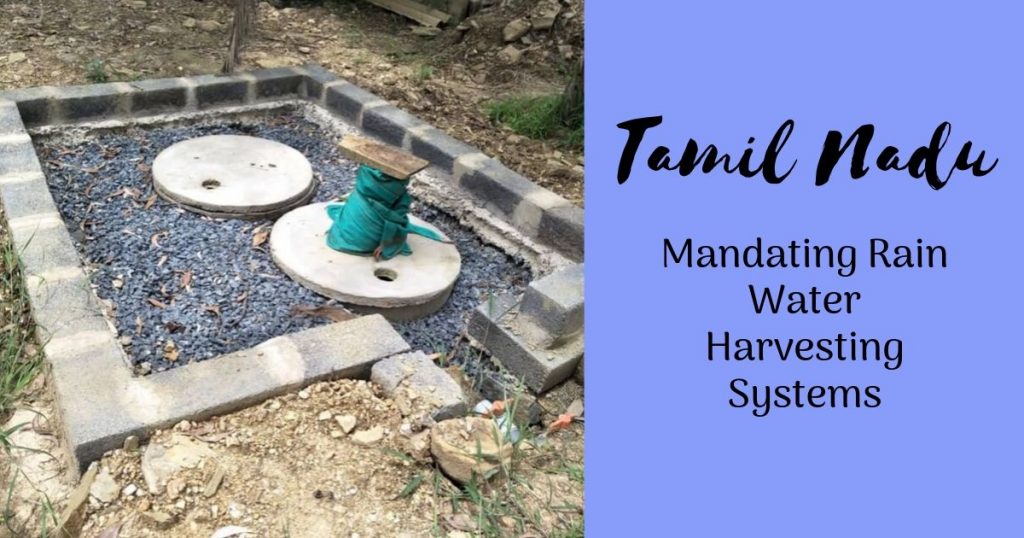
Tamil Nadu’s step towards making Rain Water Harvesting Systems Mandatory
Tamil Nadu is a pioneering Indian state that mandated setting up of Rainwater Harvesting Systems way back in 2001 when a water crisis hit the city of Chennai very similar to the one we are experiencing now in 2019. As a measure to increase the ground water table, the then Government under Selvi J. Jayalalitha made it mandatory that every built structure have a working RWH.
The amendment made to section 215 (a) of the Tamil Nadu district municipalities Act, 1920 and building rules 1973 made it mandatory that all new buildings should be provided with a Rainwater Harvesting System (RWH System).
Yet despite those amendments, people of Chennai turned a deaf ear and 18 years later the city lacks the basic infrastructure leaving it bone dry and its residents tussling for water. A survey conducted by the Government of Tamil Nadu in July 2019 – August 2019 revealed that only 40% of the residential buildings have a working Rain Water Harvesting Structures. A survey showed that at least 5Lakh buildings did not have Rainwater Harvesting systems.
The current water crisis in Chennai has forced the Government of Tamil Nadu to set a three-month deadline for private, government, educational institutions and other buildings to set up state-approved Rainwater Harvesting Systems. And those who do not comply will be sent a notice and will be liable to strict government action.
Chennai’s ‘Rain Man’, Sekhar Raghavan, who is the founder of the NGO, ‘Rain Centre’, Adyar says that most people did not set a Rainwater Harvesting System after 2003 and even those who did, had set it up wrongly. He also adds that there is a lack of experts who can guide people correctly in setting up an efficient Rainwater harvesting system. Official sources say that a Non-Objection Certificate (NOC) should not be provided to those buildings that have not allocated space and resources for RWH systems. Despite this rule, there are over 60,000 buildings in Chennai and over 5Lakh buildings throughout the state do not have RWH structures to save rain water.